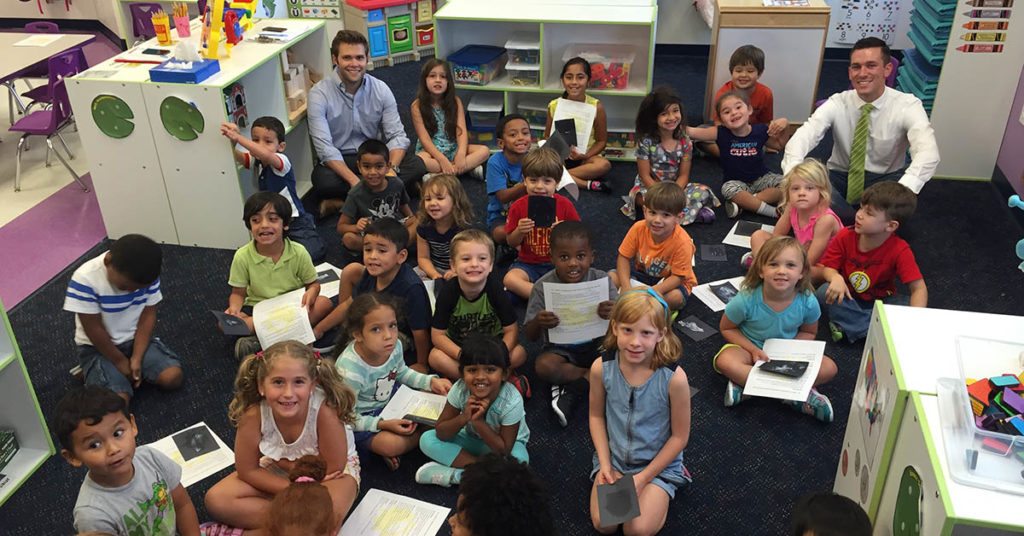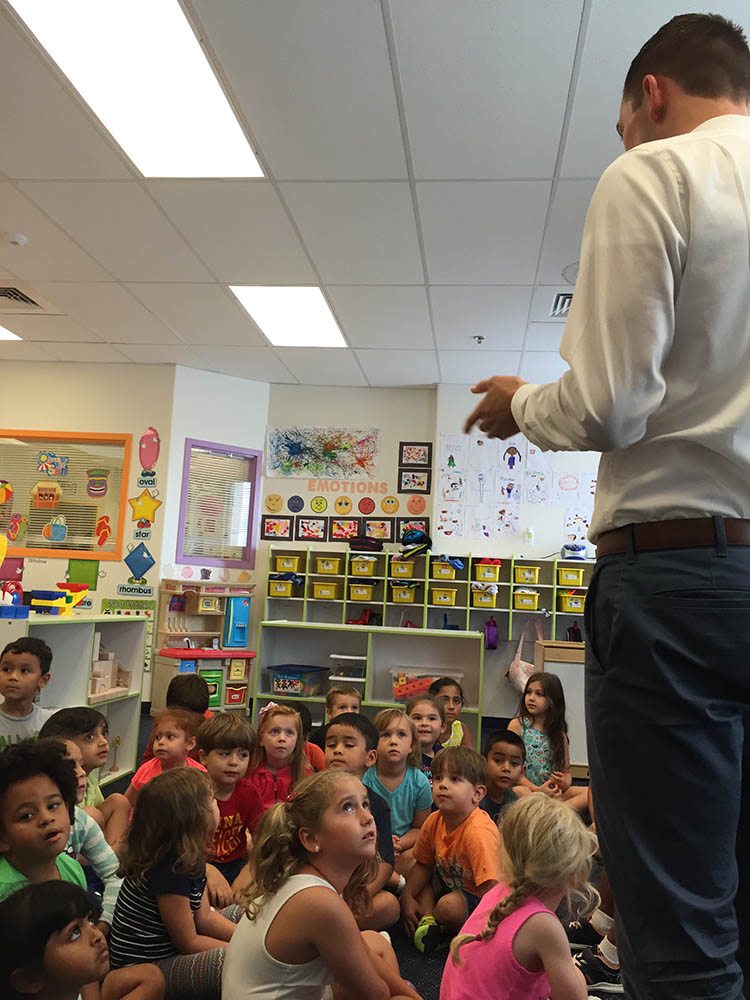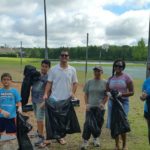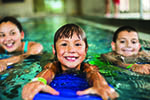Beyond the prestige of having a medical school in Lake Nona, there are positive effects that occur throughout the community as a byproduct because of its presence. Third-year medical students Steven Kelly and Jordan Mabey are great examples of how having the UCF College of Medicine in our backyard has already strengthened our community.
Not willing to wait until he became a practicing physician to serve the residents of Lake Nona, Steven conceptualized and designed a program one afternoon that would allow him to help others while attending medical school.
“Becoming a doctor is a long process. Most of us want to be doctors because of our desire to engage with the community on an individual level in order to help people improve the quality of their lives. However, wading through the busy work, brute memorization, and endless study hours of undergraduate education and medical school for year after year after year can be a little deflating at times. You’re so eager to engage with and help others, but it takes years to get to the point that you can meaningfully do that as a doctor! Community service is a way to circumvent the process.”
That afternoon, the Junior Medical Students Program was born. Steven designed a framework of curriculum that he and other medical students can easily and quickly deliver to young elementary school-aged students. The educational opportunity serves two purposes: one, to educate children about an important topic, and the other to get them familiar with the scientific method in a fun way.
“There are many ways to get involved in the community, but my personal preference is to take what I’m presently learning and to find a way to engage with the community using that knowledge. While in medical school, you are constantly applying the scientific method, and you come to recognize the importance of understanding that process. I hated studying the scientific method through middle school and high school – it always seemed so dry – so I wanted to find a way to teach it in a way that was simple and fun enough that children could understand it. The objective of the program is to teach the scientific method to children in a fun and engaging way. Hopefully, this helps children to see that science is not about memorizing boring and seemingly irrelevant facts and formulas. Really, science is about exploration of our environment so that we can use the resources we have at our disposal to improve our health and quality of life.”
Steven engaged The Learning Experience Academy of Early Education located at 11800 Narcoossee Rd., which was eager to participate. Steven and Jordan conducted an experiment with approximately 40 children to answer the question, “Which provides better protection from the sun: Sunscreen or UV-proof t-shirts?” In order to conduct the experiment, the children applied sunscreen to a black piece of construction paper (that bleaches when left in the sun) and placed it outside for one day. With another piece of black construction paper, they only covered it with a UV-proof t-shirt. They left both pieces of construction paper in the sun for a 24-hour period, then observed the results. In conclusion, the Junior Medical Students and UCF medical students found that the UV-proof t-shirt-covered paper kept its color better than the paper covered with sunscreen. Thus, their recommendation is that for the best possible sun protection, people should use UV-proof t-shirts rather than sunscreen.
Steven and other UCF medical students are eager to continue with the success of the newly formed Junior Medical Students program and have already started working on designing experiments that teach children about nutrition, heart health, and exercise. If you are associated with a child care center and would like more information about the Junior Medical Students program, please feel free to reach out to Steven via email at steven.kelly04@knights.ucf.edu.




